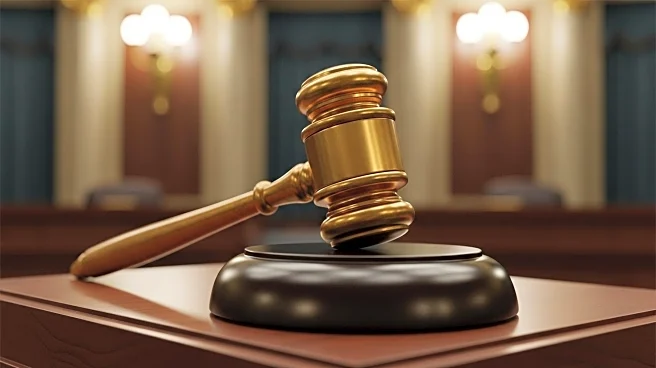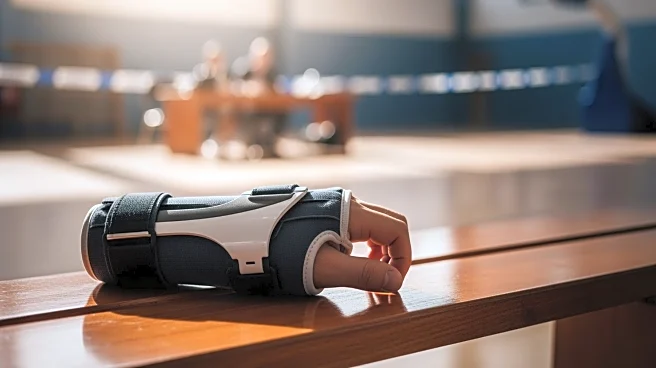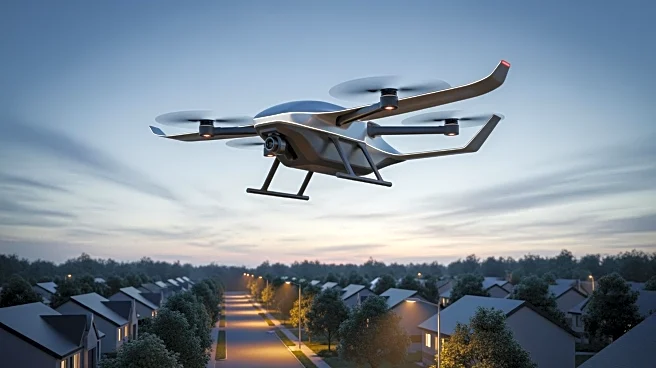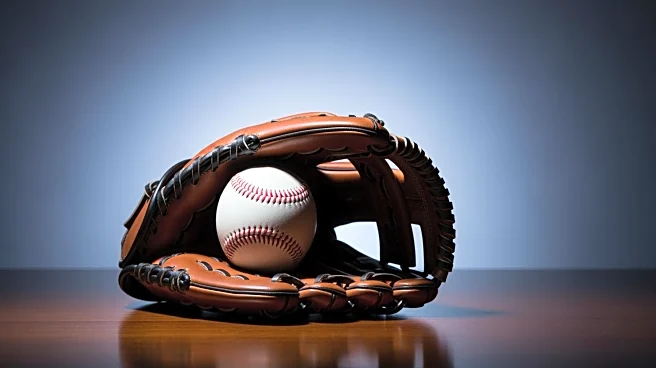What's Happening?
Peru's Congress has removed President Dina Boluarte from office, marking the seventh presidential change in less than a decade. The decision came after a late-night impeachment trial where lawmakers cited Boluarte's inability to address the country's rising crime rates. José Jerí, a 38-year-old lawyer and the president of Congress, was sworn in as the interim president. Boluarte's removal follows a shooting incident at a concert in Lima, which heightened public anger over crime. Jerí has pledged to tackle crime and ensure neutrality in the upcoming presidential elections scheduled for April.
Why It's Important?
The removal of President Boluarte underscores the political instability in Peru, which has seen frequent changes in leadership. The decision reflects widespread dissatisfaction with Boluarte's handling of crime, a major issue affecting the nation. Her ousting could lead to shifts in policy and governance, impacting Peru's social and economic landscape. The new interim president, José Jerí, faces the challenge of restoring public trust and addressing crime effectively. This political upheaval may influence Peru's international relations and economic prospects, as stability is crucial for investment and development.
What's Next?
José Jerí will serve as interim president until the elections in April, where a new leader will be chosen. His immediate focus will be on combating crime and ensuring a fair electoral process. The Attorney General's Office is investigating Boluarte for alleged corruption, which could lead to legal proceedings. Political parties are likely to strategize for the upcoming elections, potentially reshaping Peru's political landscape. Public response and international reactions will be key in determining the country's future direction.
Beyond the Headlines
Boluarte's removal highlights deeper issues within Peru's political system, including corruption and governance challenges. The frequent changes in leadership may affect the country's ability to implement long-term policies. The focus on crime and corruption reflects broader societal concerns, which could influence future political agendas. The situation raises questions about the effectiveness of Peru's democratic institutions and the role of Congress in shaping national policy.











